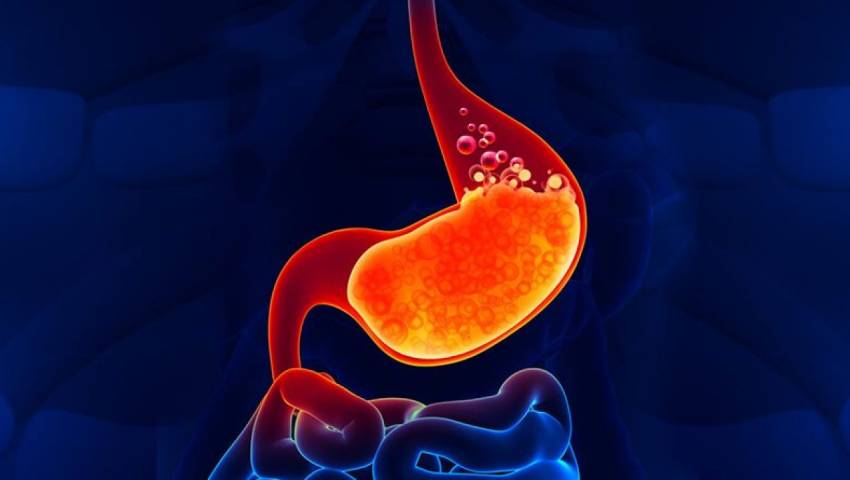
- 18/10/2024
- Dr. Samrat Jankar
- 0 Comments
- Blog
The Surgical Management of GERD: When Medication Isn’t Enough
Gastroesophageal reflux disease (GERD) is a chronic condition in which stomach acid frequently flows back into the esophagus, causing irritation and discomfort. While many patients find comfort through lifestyle changes and medications, some cases require surgical intervention to effectively control the symptoms. In this blog, we will explore when surgery becomes necessary for GERD, the available surgical options, and the potential benefits of these procedures.
Dr. Samrat Jankar is a leading gastrointestinal surgeon in Pune, specializing in advanced laparoscopic procedures for GERD and other digestive disorders. With his vast experience in both medical and surgical treatments, Dr. Jankar ensures that every patient receives personalized care and the best possible outcomes. Contact Kaizen Gastro Care today to schedule a consultation and explore your options for managing GERD effectively.
When Does GERD Require Surgery?
Most individuals with GERD manage their symptoms with antacids, proton pump inhibitors (PPIs), and dietary modifications. However, for a subset of patients, medication alone does not provide lasting relief. Surgical treatment is typically considered when:
- Persistent Symptoms: Patients who experience persistent heartburn, regurgitation, or chest pain despite taking medications.
- Medication Fails to Control Symptoms: Despite high doses of PPIs or other drugs, symptoms such as heartburn, regurgitation, or chest pain persist.
- Severe Complications Develop: GERD can sometimes lead to more serious conditions like Barrett’s esophagus, esophageal strictures, or bleeding ulcers. Surgery may be suggested to prevent further complications.
- Lifestyle Impact: Chronic GERD can significantly impact a patient’s quality of life, affecting sleep, daily activities, and mental health. Surgery may offer a more permanent solution.
- Medication Dependence: Some patients may prefer to avoid lifelong dependence on medications, especially considering potential long-term side effects such as kidney disease or bone fractures.
Surgical Options for GERD:
When GERD advances beyond the scope of medications, several surgical procedures can offer relief. The most common options include:
Fundoplication:
Fundoplication is one of the most widely conducted surgeries for GERD. In this process, the surgeon wraps the top part of the stomach (the fundus) around the lower esophagus to strengthen the esophageal sphincter, preventing acid reflux. There are two common approaches:
- Nissen Fundoplication (Complete wrap): The stomach is wrapped 360 degrees around the esophagus. This is regarded the gold standard for GERD surgery.
- Partial Fundoplication (Toupet or Dor fundoplication): Only part of the stomach is wrapped around the esophagus, which may be an option for patients who require a less aggressive approach.
Both procedures can be done laparoscopically, meaning they are minimally invasive with faster recovery times and smaller incisions.
LINX Device:
The LINX system involves placing a small, flexible band of magnetic beads around the lower esophagus. These beads help the esophagus stay closed between swallows, controlling acid reflux. The LINX device offers an alternative to traditional fundoplication and is less invasive, allowing patients to restart normal activities relatively quickly.
Stretta Procedure:
The Stretta procedure is a non-surgical, minimally invasive option that uses radiofrequency energy to support the lower esophageal sphincter. It involves inserting a catheter into the esophagus and applying heat to the muscles. This method is generally considered when patients are looking for a less invasive treatment option.
Benefits of GERD Surgery:
For patients who have not found relief from medications, GERD surgery offers several potential advantages:
- Long-Term Relief: Many patients experience effective and lasting relief from GERD symptoms after surgery, reducing or eliminating their need for medication.
- Improved Quality of Life: By managing the underlying cause of acid reflux, surgery can restore a patient’s ability to eat, sleep, and function normally without discomfort.
- Lower Risk of Complications: Surgical intervention can help prevent serious GERD-related complications such as Barrett’s esophagus or esophageal cancer.
Is GERD Surgery Right for You?
Deciding whether to undergo surgery for GERD is a complex decision that depends on the severity of your signs, the effectiveness of medications, and your overall health. If you’re experiencing persistent symptoms despite medication or facing difficulties from GERD, it may be time to consult with a specialist. Dr. Samrat Jankar, an experienced GERD surgeon in Pune, is dedicated to helping patients find the best treatment options for GERD, whether through medication or surgery.
Conclusion:
GERD is a challenging condition that can significantly affect a person’s quality of life, specifically when medications fail to provide adequate relief. Surgical options such as fundoplication, LINX device implantation, and the Stretta procedure offer hope for patients seeking long-term solutions.
If you’re considering surgical management of GERD or want to learn more about the available treatment options, consult with Dr. Samrat Jankar at Kaizen Gastro Care for personalized care and expert advice.
